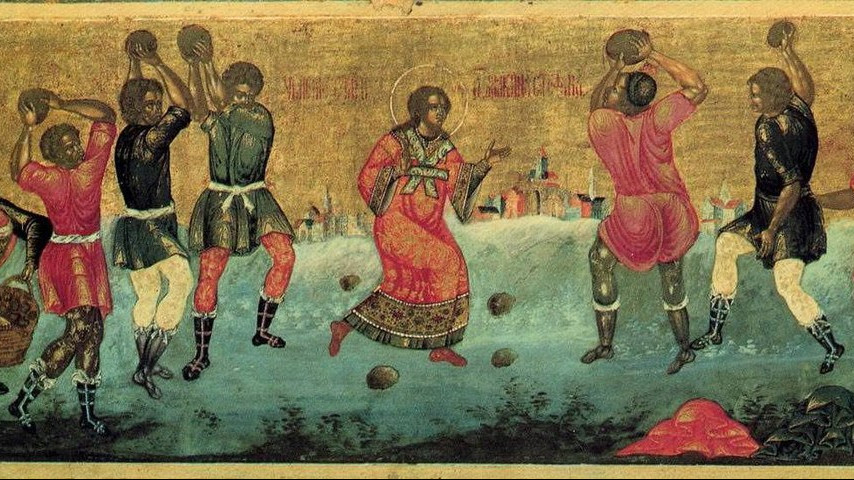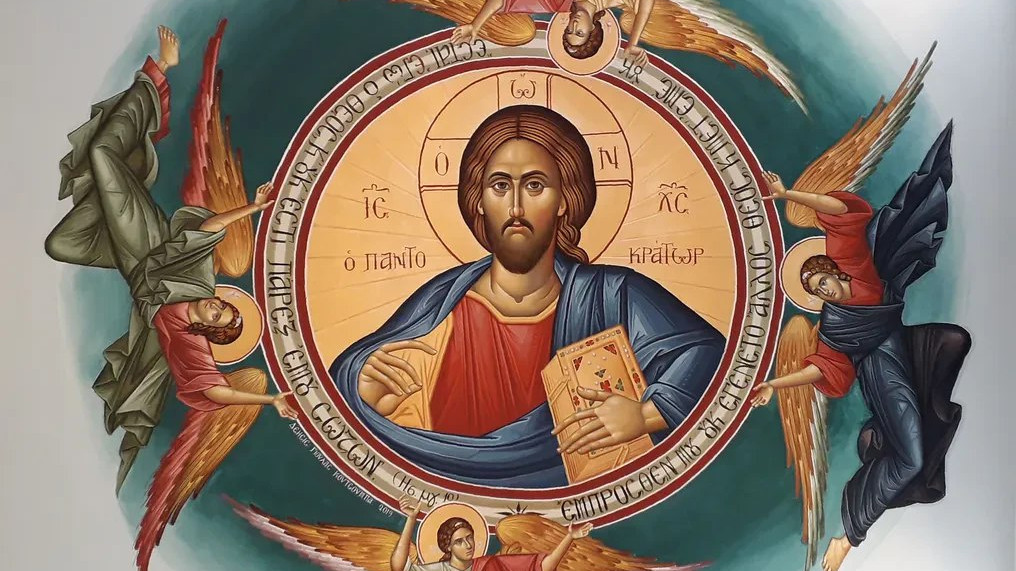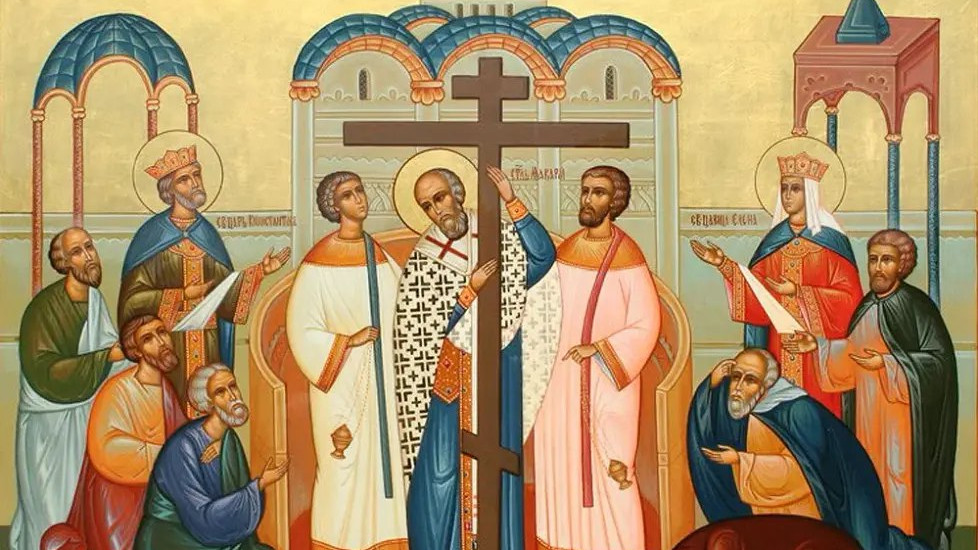Онлайн трансляция | 12 сентября
Название трансляции
- 12 сентября 2015 Название трансляции
- 12 сентября 2015 Название трансляции
- 12 сентября 2015 Название трансляции
- 12 сентября 2015 Название трансляции
- 12 сентября 2015 Название трансляции
- 12 сентября 2015 Название трансляции
- 12 сентября 2015 Название трансляции
- 12 сентября 2015 Название трансляции
articles

On the Importance of the Apostles’ Fast
The Fast of Peter, also called the Apostolic Fast, dates back to the earliest centuries of the Christian Church. Its institution is attested in both the Apostolic Canons and the Apostolic Tradition according to St Hippolytus of Rome (third century).
The Apostolic Canons —a compendium of church regulations compiled in Christianity’s formative period—contain this rule:
“After Pentecost, celebrate one week, and then keep a fast; for it is right both to rejoice after receiving gifts from God and to fast after the body has been refreshed.”
From the fourth century onward, numerous patristic sources testify to the Fast of Peter. It is mentioned by such eminent church fathers as St Athanasius the Great, St Ambrose of Milan, St Leo the Great and Theodoret of Cyrrhus. The fast’s wider observance was reinforced, among other factors, by erecting churches in honour of the chief apostles Peter and Paul in Constantinople and Rome around the year 324.
St Leo the Great explains its purpose:
“After the lengthy festival of Pentecost, fasting is especially necessary, so that by this struggle we may cleanse our thoughts and become worthy of the gifts of the Holy Spirit.”
Thus, the Fast of Peter is seen not merely as a means of spiritual purification, but also as a necessary condition for preserving and increasing the gracious gifts bestowed on the faithful during the great feasts of Pascha and Pentecost.
⸻
On the Importance of Fasting in a Christian’s Life
Fasting is an integral part of Christian life. Orthodox Christians fast every Wednesday and Friday—one-day fasts—and observe four lengthy fasts each year before Pascha, Christmas, Dormition, and the feast of the holy apostles Peter and Paul. Altogether, more than half the days of the year are fasting days.
Why does the Church attach such importance to fasting? What spiritual effect can apparently minor acts, such as refraining from sausage or sour cream, possibly have?
This question is often posed by people distant from the Church, as well as by Protestants and Catholics, among whom fasting has lost its strictness or vanished entirely.
Our relationship with God—our spiritual life—depends directly on whether we follow the Church’s fasting rules or live accustomed to denying ourselves nothing. Five main reasons stand out:
- Participation in Christ’s life and sufferings.
St Ambrose of Milan declares: “Wishing to be a Christian, behave as Christ behaved. He, though sinless, fasted forty days; you, a sinner, refuse to fast … and overindulge while Christ hungered for you.”
- A weapon in spiritual warfare.
“This kind is cast out only by prayer and fasting” (Matt 17:21). Adam’s intemperance brought the devil power over humanity; temperance restores lost freedom. St Isaac the Syrian writes: “The devil fears fasting as the very weapon with which Christ defeated him in the wilderness.”
- Inner collectedness and living prayer.
A satiated body drags the soul earthward. “A full belly,” says St John of Kronstadt, “loses faith and becomes insensible to prayer.”
- Obedience to the Church.
Refusing to fast is, in effect, saying “I know best.” We heed a doctor prescribing a diet for the body; how much more should we heed the Church, guardian of the immortal soul?
- Mortification of the flesh and quickening of the soul.
St Ignatius Brianchaninov notes that when Adam sinned, the Spirit departed, the soul died, and flesh and blood “came to life.” Fasting reverses that imbalance.
Fasting is also a sacrifice offered to God. Loss of weight, pallor or weakness during a fast is an offering of one’s own flesh. Moreover, every saint, without exception, fasted; by fasting, we follow their example and share in their life.
⸻
On the Measure of Fasting
Every virtue requires discernment; without measure, fasting can harm body and soul. Monastics, lay-people, children, the sick and travellers each need a different rule. The goal is not food restriction as an end in itself, but drawing near to God.
St Isaac the Syrian: “Everything is adorned by measure; without measure, even what is beautiful turns to harm.”
Elder Paisios the Athonite observed that fasting does not ruin the stomach; anxiety does. A person should eat according to their condition, maintaining internal peace. Poor health can impede spiritual growth, as St Nektarios of Aegina counselled.
Fasting is a means, not an end. The end is Christ—our union with God. Blessed Diadochos: “Fasting has value, though not before God; it is only a tool. An artist is judged not by his tools, but by his works.”
⸻
The Danger of the Disappearance of Fasting
In some Churches following the Revised Julian calendar, the Fast of Peter occasionally disappears: fewer than seven days lie between Pentecost and 29 June, so the fast is cancelled. This contradicts the spirit of the fathers and the Typikon. Fasting is not calendar arithmetic but medicine for the soul; abolishing it signals a weakening of spiritual life, replacing genuine tradition with comfort and eroding true Christian living.
Therefore, beloved brothers and sisters, with God’s help let us prepare ourselves worthily for the great feast of the holy chief apostles Peter and Paul by keeping the teaching of Christ that they left to us and that their successors have handed down.
Редакция сайта www.lavra.ua
To signed up and receive Lavra’s emails and important news once a week.
You will be able to unsubscribe from emails at any time.





Spelling error report
The following text will be sent to our editors: